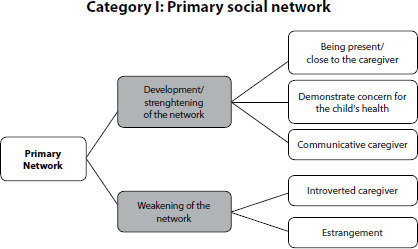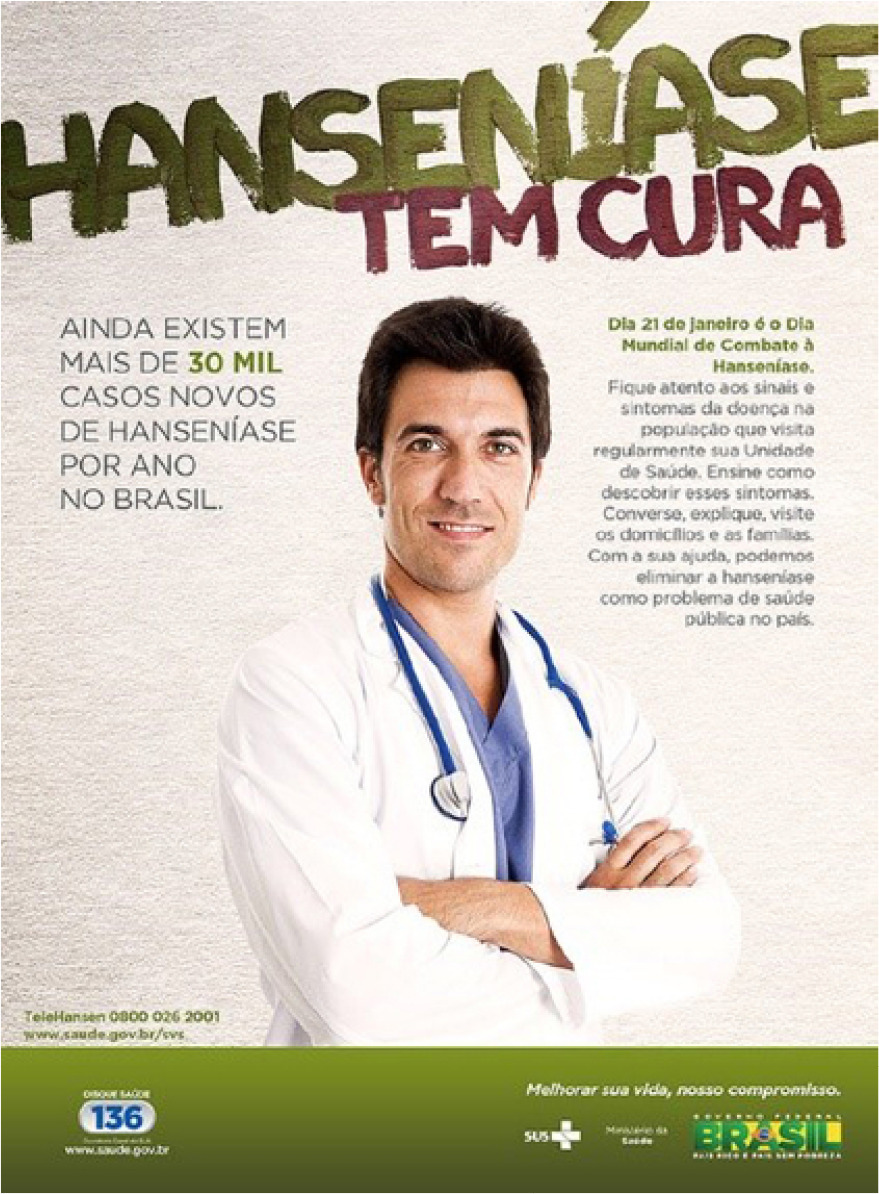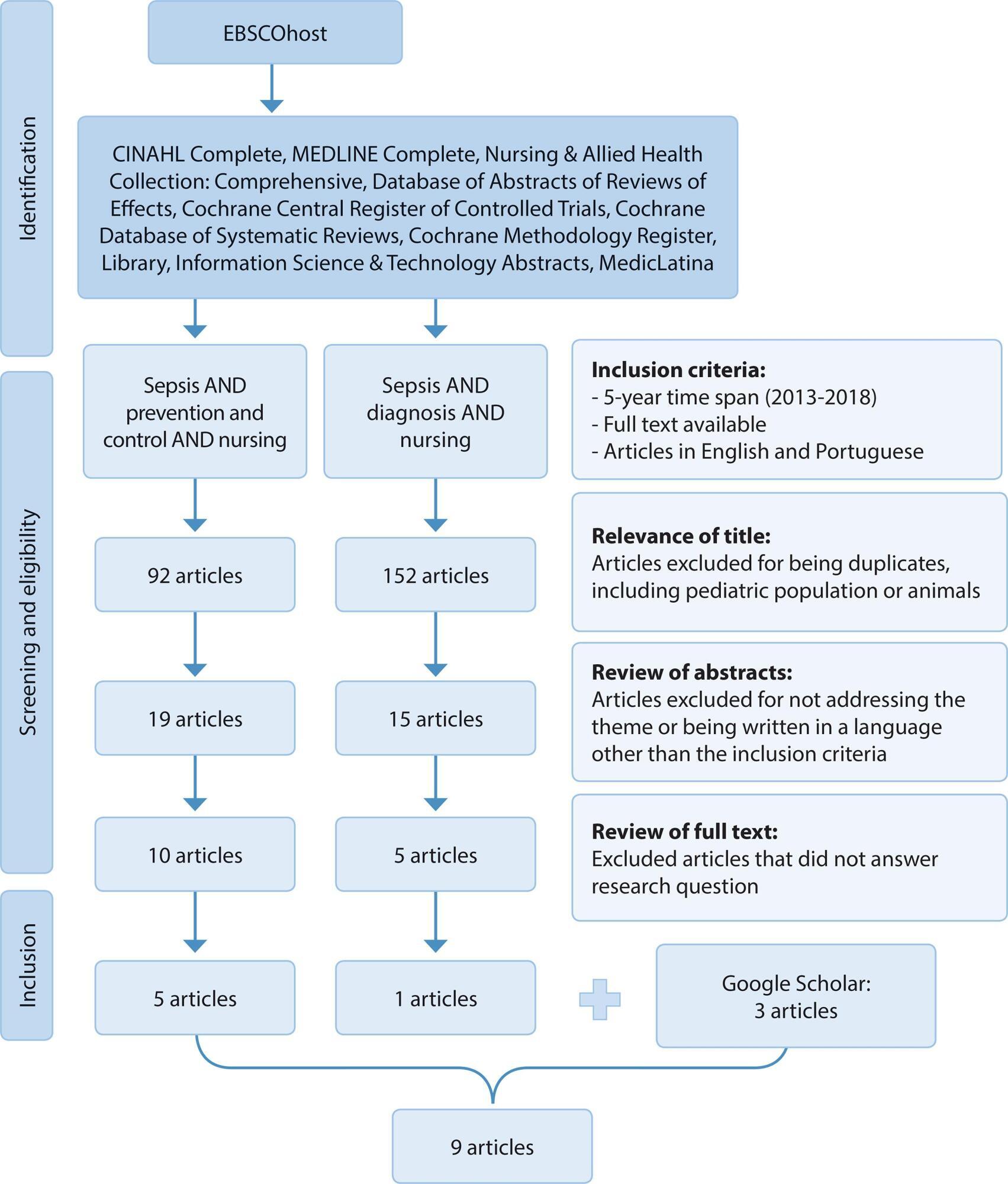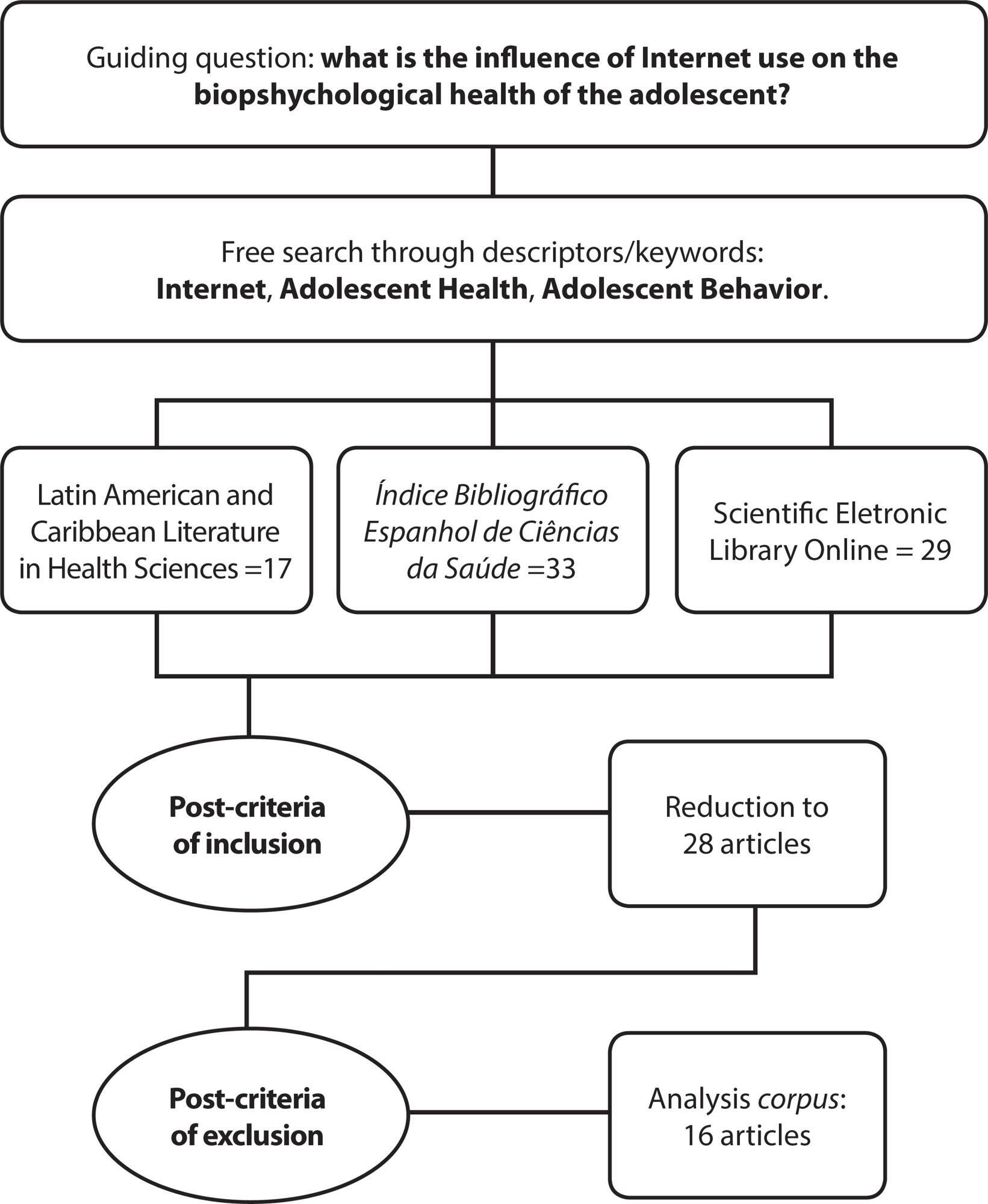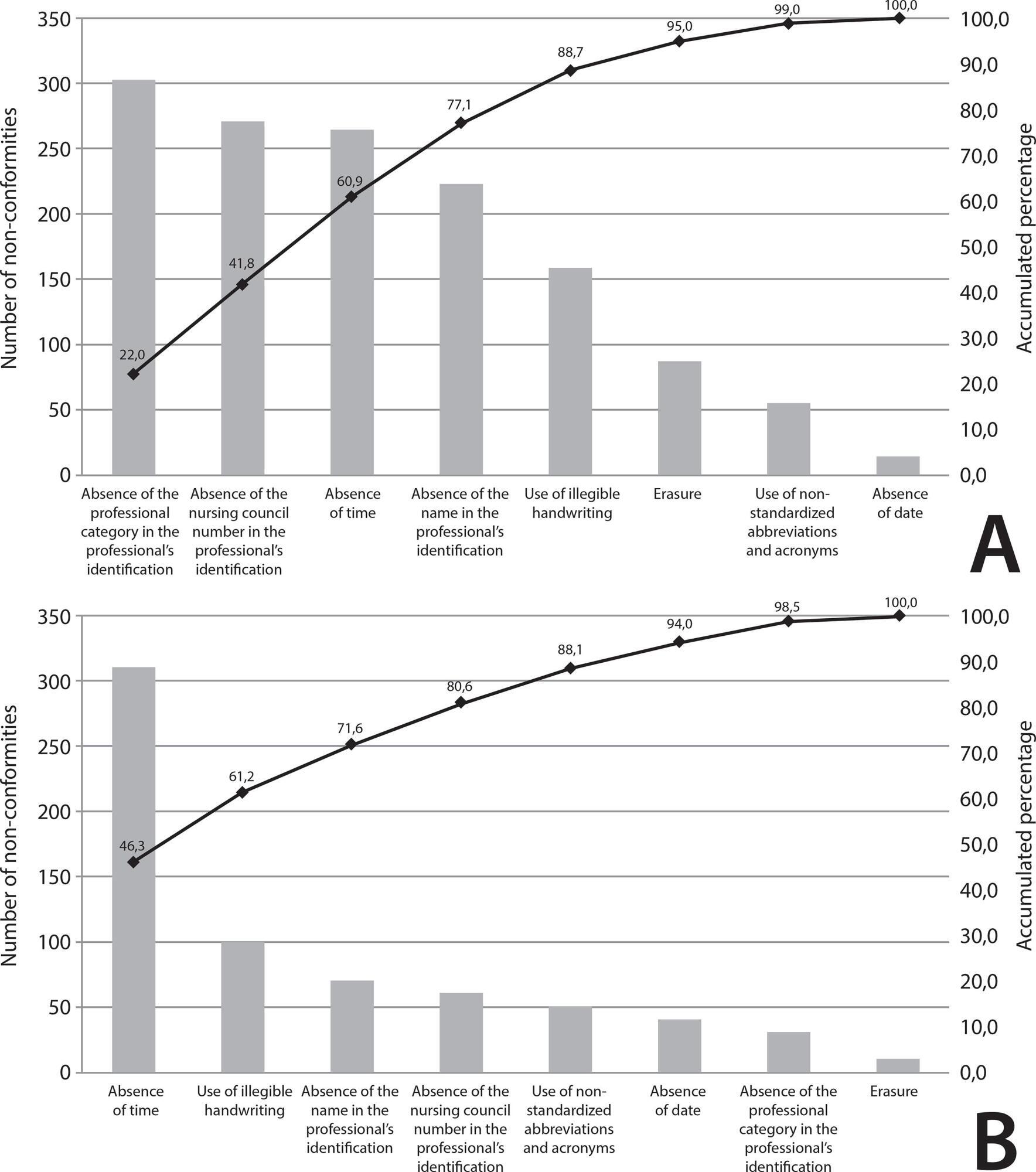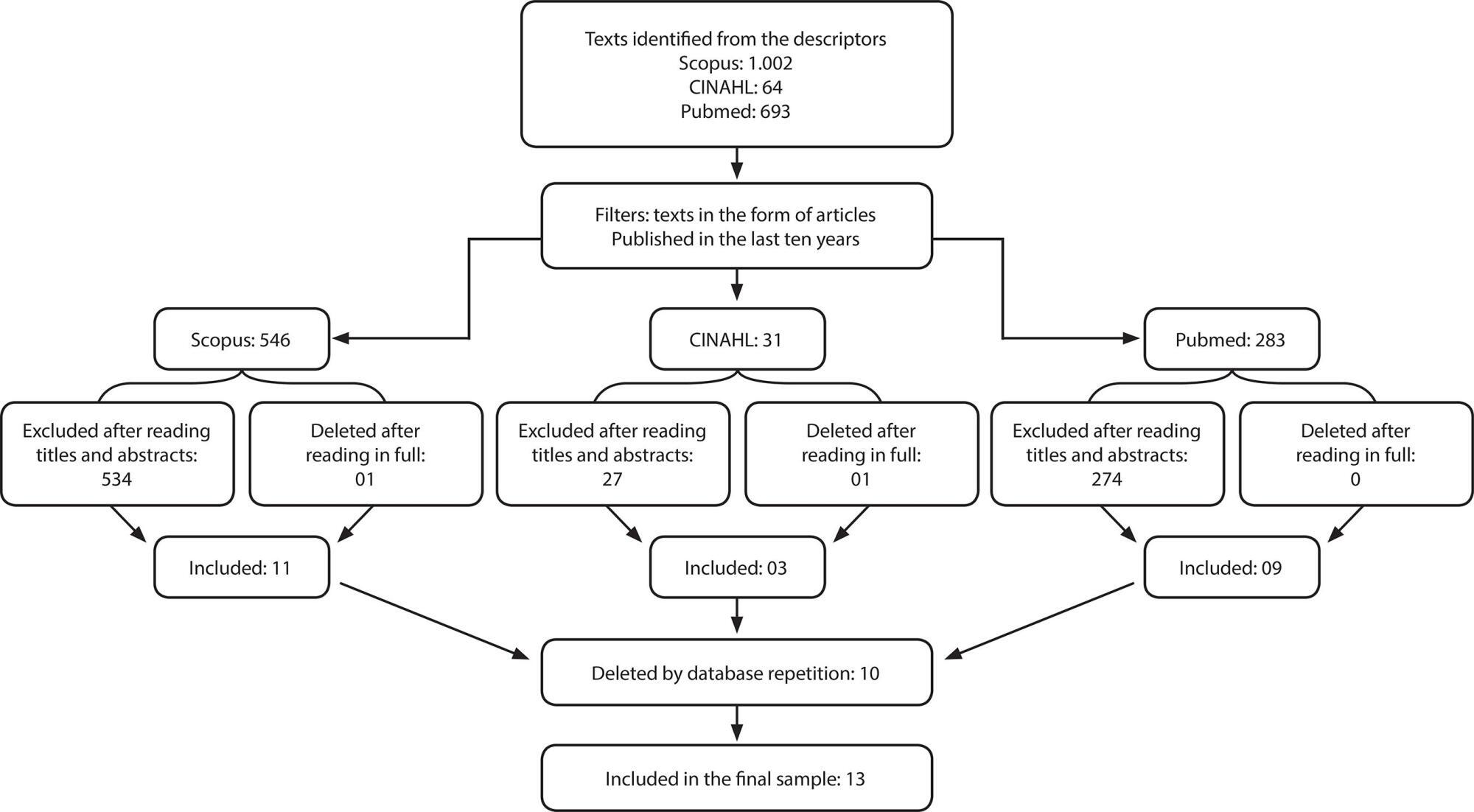-
RESEARCH01-01-2018
Nursing diagnoses from ICNP® for people with metabolic syndrome
Revista Brasileira de Enfermagem. 2018;71:467-474
Abstract
RESEARCHNursing diagnoses from ICNP® for people with metabolic syndrome
Revista Brasileira de Enfermagem. 2018;71:467-474
DOI 10.1590/0034-7167-2017-0125
Views0See moreABSTRACT
Objective:
To construct nursing diagnosis statements based on the International Classification for Nursing Practice (ICNP®) for people with metabolic syndrome, settled on the theoretical framework of Basic Human Needs.
Method:
Descriptive study developed in four stages: 1) Identification and validation of terms relevant to care with health priority; 2) Cross-mapping of the terms identified with ICNP® terms; 3) Construction of the nursing diagnosis statements; and 4) Cross-mapping of constructed statements with the ones in ICNP®.
Results:
Regarding terms extracted, 370 were validated based on the consensus (100%) among specialists, subsidizing the elaboration of 52 nursing diagnosis statements from ICNP® version 2015, distributed among the Basic Human Needs proposed by theoretical framework.
Conclusion:
It was possible to construct nursing diagnoses for people with metabolic syndrome based on the terms extracted from the literature, with a predominance of the need for “Health education and learning”.
PlumX Metrics
- Citations
- Citation Indexes: 10
- Usage
- Full Text Views: 13064
- Abstract Views: 511
- Captures
- Readers: 60
-
01-01-2018
Street Clinic as good practice in Collective Health
Revista Brasileira de Enfermagem. 2018;71:465-466
Abstract
Street Clinic as good practice in Collective Health
Revista Brasileira de Enfermagem. 2018;71:465-466
DOI 10.1590/0034-7167-201871sup102
Views0“Freely translated as “How can I face this world? Life is ungrateful itself; but it brings hope even from the midst of the bitterness of despair”().Life on the streets has presented itself as a reality for an increasing number of people, especially in the big cities of Brazil and the world. This harsh social reality […]See morePlumX Metrics
- Citations
- Citation Indexes: 6
- Usage
- Full Text Views: 6057
- Abstract Views: 14
- Captures
- Readers: 18
-
01-01-2018
Consultório na Rua como boa prática em Saúde Coletiva
Revista Brasileira de Enfermagem. 2018;71:465-466
Abstract
Consultório na Rua como boa prática em Saúde Coletiva
Revista Brasileira de Enfermagem. 2018;71:465-466
DOI 10.1590/0034-7167-201871sup102
Views0“Como é que posso com este mundo? A vida é ingrata no macio de si; mas transtraz a esperança mesmo do meio do fel do desespero”().A vida nas ruas tem se apresentado como uma realidade para um número cada vez maior de pessoas, sobretudo nas grandes cidades do Brasil e do mundo. Essa dura realidade […]See morePlumX Metrics
- Citations
- Citation Indexes: 6
- Usage
- Full Text Views: 6057
- Abstract Views: 14
- Captures
- Readers: 18
-
01-01-2018
30 years of Nursing in Collective Health
Revista Brasileira de Enfermagem. 2018;71:463-464
Abstract
30 years of Nursing in Collective Health
Revista Brasileira de Enfermagem. 2018;71:463-464
DOI 10.1590/0034-7167-201871sup101
Views1It is celebrated 30 years of the official launch, in Brazil, of the Nursing in Collective Health, a field of theories and practices supported by the historical and dialectical materialism. Nothing is more instigating than bringing to readers the special edition of REBEn called “Contributions of Public Health to nursing practice”. In this editorial, it […]See more -
01-01-2018
30 anos de Enfermagem em Saúde Coletiva
Revista Brasileira de Enfermagem. 2018;71:463-464
Abstract
30 anos de Enfermagem em Saúde Coletiva
Revista Brasileira de Enfermagem. 2018;71:463-464
DOI 10.1590/0034-7167-201871sup101
Views1Comemora-se os 30 anos do lançamento oficial, no Brasil, da Enfermagem em Saúde Coletiva, um campo de teorias e práticas sustentadas pelo materialismo histórico e dialético. Nada mais instigante do que trazer aos leitores o número especial da REBEn intitulado “Contribuições e desafios das práticas de Enfermagem em Saúde Coletiva”. Neste editorial, indaga-se: teremos sido […]See more -
RESEARCH01-24-2017
Nurses in the labor market: professional insertion, competencies and skills
Revista Brasileira de Enfermagem. 2017;70(6):1220-1226
Abstract
RESEARCHNurses in the labor market: professional insertion, competencies and skills
Revista Brasileira de Enfermagem. 2017;70(6):1220-1226
DOI 10.1590/0034-7167-2016-0061
Views0See moreABSTRACT
Objective:
to characterize nurses graduated from the School of Nursing of the University of São Paulo, from 2006 to 2012; verify their entry, facilitating factors and difficulties of these graduates in the labor market and to consider their skills and competences in the world of work.
Method:
an exploratory, descriptive study with a qualitative approach.
Results:
out of 505 graduates, 172 (34.1%) participated in the research. Entry into the labor market was mainly via public hospital institutions, in the SE of Brazil, in the caregiving sectors. The greater part remained from one to two years in their first job. Most agreed that they were prepared to meet the health needs of the population. Furthermore, they had been encouraged to seek systematic and continuous improvement in a critical, reflexive and creative way, while combining technical-scientific knowledge and personal skills.
Conclusion:
the results show that the University of São Paulo has been preparing nurses for work in the labor market, in accordance with the provisions of the National Curricular Guidelines.
-
ERRATUM01-01-2017
ERRATUM
Revista Brasileira de Enfermagem. 2017;70(6):1348-1348
Abstract
ERRATUMERRATUM
Revista Brasileira de Enfermagem. 2017;70(6):1348-1348
DOI 10.1590/0034-7167.20177006e02
Views0Article “Nursing appointment and cardiometabolic control of diabetics: a randomized clinical trial”, with number of DOI: , published in the journal Revista Brasileira de Enfermagem, v70(3):468-7, on page 468:Where it read:[…]See more -
ERRATUM01-01-2017
ERRATUM
Revista Brasileira de Enfermagem. 2017;70(6):1347-1347
Abstract
ERRATUMERRATUM
Revista Brasileira de Enfermagem. 2017;70(6):1347-1347
DOI 10.1590/0034-7167.20177006e01
Views0Article “Physical and psychological violence against the elderly: prevalence and associated factors”, with number of DOI: , published in the journal Revista Brasileira de Enfermagem, v68(6):727-33, on page 732, it is added:“FUNDING[…]See more
Search
Search in:
Nuvem de Tags
Enfermagem (930)Cuidados de Enfermagem (269)Atenção Primária à Saúde (239)Idoso (208)Educação em Enfermagem (151)Segurança do Paciente (150)Saúde Mental (145)Educação em Saúde (139)Estudos de Validação (131)Qualidade de Vida (104)Tecnologia Educacional (100)Promoção da Saúde (99)COVID-19 (91)Criança (91)Família (87)Enfermagem Pediátrica (86)Saúde do Trabalhador (86)Adolescente (85)Saúde Pública (82)Estudantes de Enfermagem (77)







